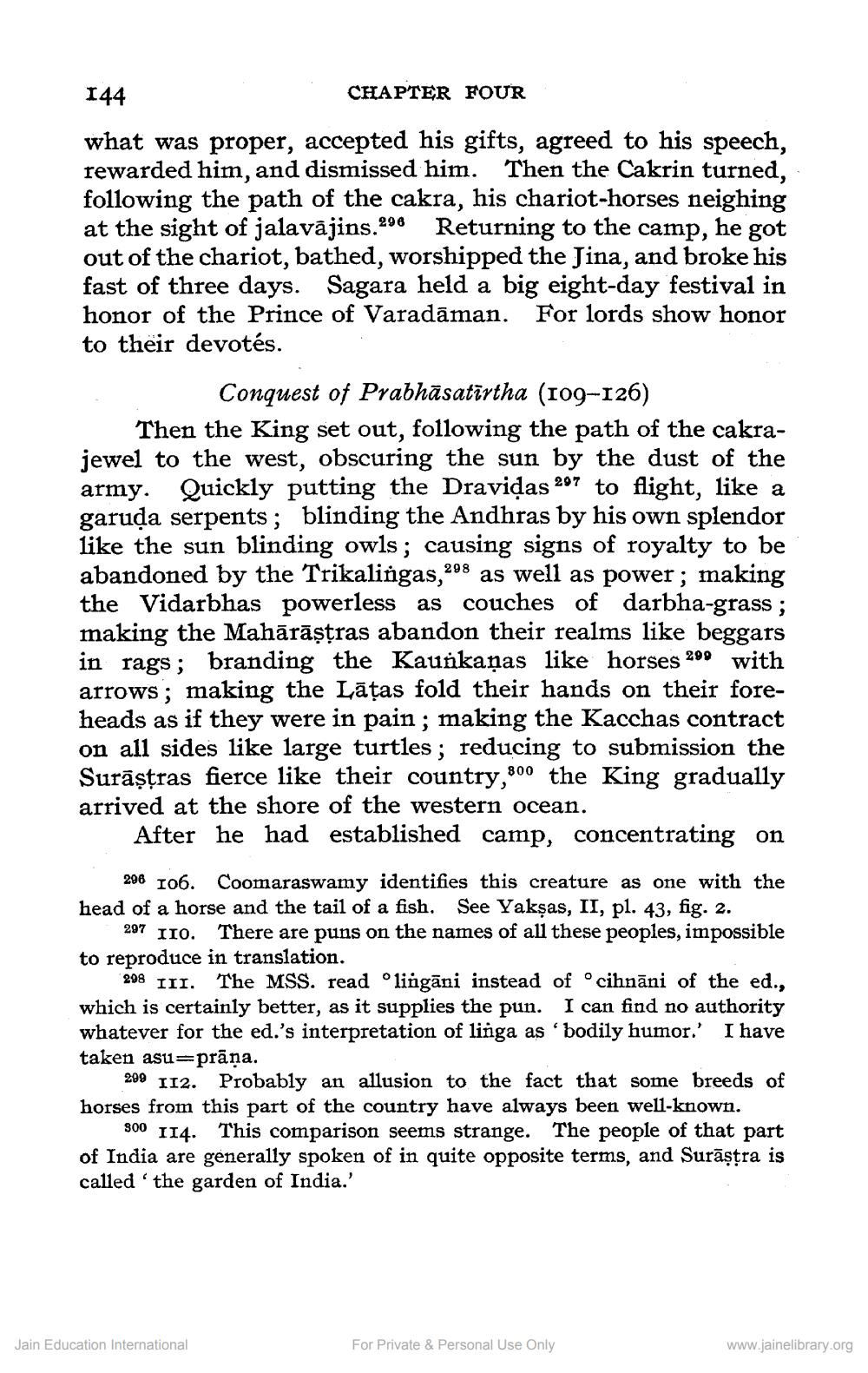________________
144
CHAPTER FOUR what was proper, accepted his gifts, agreed to his speech, rewarded him, and dismissed him. Then the Cakrin turned, following the path of the cakra, his chariot-horses neighing at the sight of jalavājins.298 Returning to the camp, he got out of the chariot, bathed, worshipped the Jina, and broke his fast of three days. Sagara held a big eight-day festival in honor of the Prince of Varadāman. For lords show honor to their devotés.
Conquest of Prabhāsatirtha (109-126) Then the King set out, following the path of the cakrajewel to the west, obscuring the sun by the dust of the army. Quickly putting the Draviļas 207 to fight, like a garuda serpents; blinding the Andhras by his own splendor like the sun blinding owls; causing signs of royalty to be abandoned by the Trikalingas,298 as well as power; making the Vidarbhas powerless as couches of darbha-grass ; making the Mahārāștras abandon their realms like beggars in rags; branding the Kaunkaņas like horses 208 with arrows; making the Lāțas fold their hands on their foreheads as if they were in pain; making the Kacchas contract on all sides like large turtles; reducing to submission the Surāṣtras fierce like their country,800 the King gradually arrived at the shore of the western ocean.
After he had established camp, concentrating on
90
296 106. Coomaraswamy identifies this creature as one with the head of a horse and the tail of a fish. See Yakşas, II, pl. 43, fig. 2.
297 110. There are puns on the names of all these peoples, impossible to reproduce in translation.
298 III. The MSS. read olingāni instead of ocihnāni of the ed., which is certainly better, as it supplies the pun. I can find no authority whatever for the ed.'s interpretation of liñga as 'bodily humor. I have taken asu=prāna.
299 112. Probably an allusion to the fact that some breeds of horses from this part of the country have always been well-known.
800 114. This comparison seems strange. The people of that part of India are generally spoken of in quite opposite terms, and Surāştra is called the garden of India.'
Jain Education International
For Private & Personal Use Only
www.jainelibrary.org




